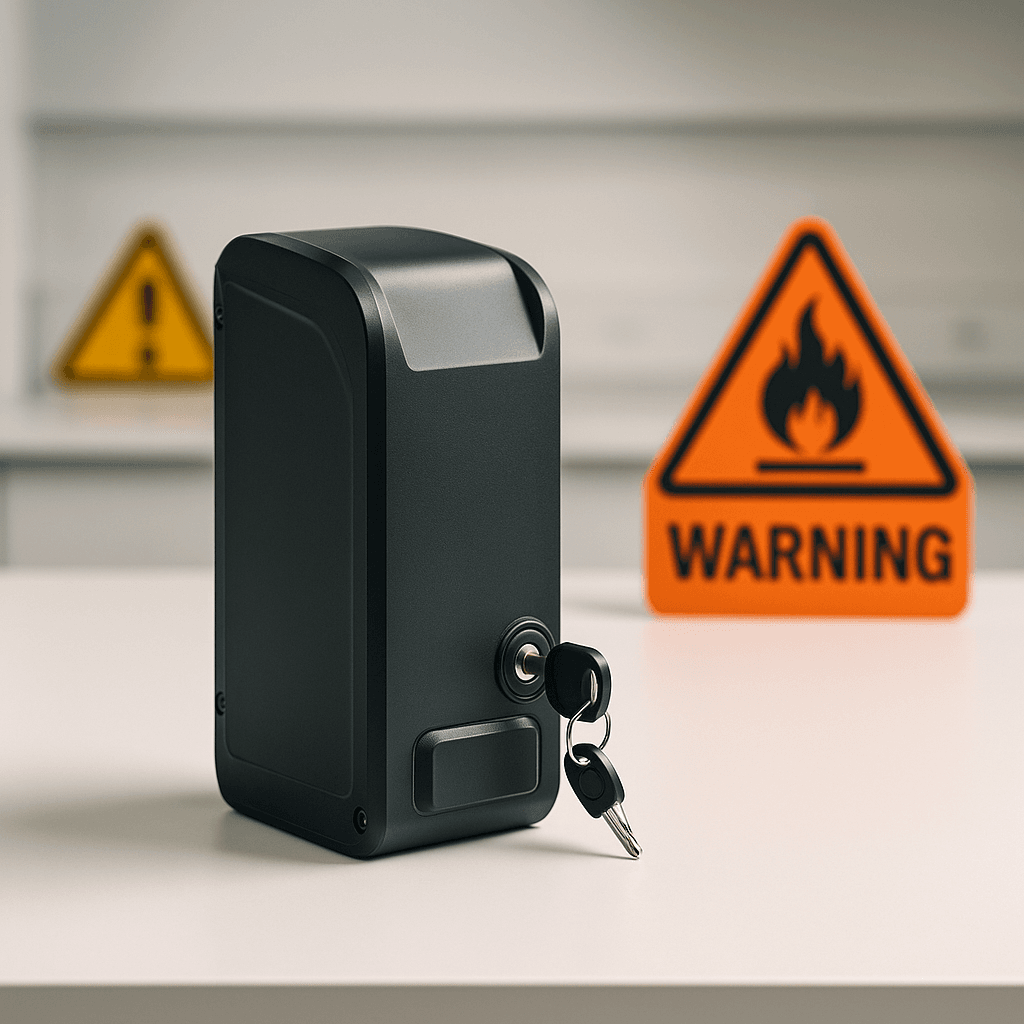The U.S. Consumer Product Safety Commission just issued an urgent warning telling owners of Rad Power Bikes to immediately stop using their e-bike batteries due to fire and explosion risks. The federal agency has linked the batteries to 31 fire incidents, with 12 causing property damage - and the company's refusal to agree to a recall has escalated the dispute into a public safety standoff that could determine Rad Power's survival.
The federal safety warning couldn't come at a worse time for Rad Power Bikes, which is already fighting for survival. The Consumer Product Safety Commission issued its urgent advisory Monday after linking Rad Power's lithium-ion batteries to 31 fire incidents - 12 of which caused property damage, and some occurring even when the batteries weren't charging. The agency's stark language doesn't mince words: the batteries "pose a risk of serious injury and death" and can "unexpectedly ignite and explode," especially when exposed to water and debris. But this isn't just another routine product recall. Rad Power told employees earlier this month the company will shut down in January without new funding, making the CPSC's recall demands potentially impossible to fulfill. The commission claims Rad Power "refused to agree to an acceptable recall" and is "unable to offer replacement batteries or refunds to all consumers" due to its financial situation. The dispute reveals the complex intersection of consumer safety and business survival in the volatile e-bike industry. Rad Power has sold hundreds of thousands of e-bikes over the past decade, becoming one of the largest direct-to-consumer brands in the micromobility space. But the company's rapid growth came as the broader e-bike market faced increasing scrutiny over battery safety, particularly after high-profile fires in New York City led to regulatory crackdowns. Rad Power isn't backing down from the fight. The company told TechCrunch it "firmly stands behind our batteries and our reputation as leaders in the ebike industry" and "strongly disagrees with the CPSC's characterization of certain Rad batteries as defective or unsafe." The startup claims it offered "multiple good-faith solutions," including upgrading customers to newer batteries not covered by the warning. "CPSC rejected this opportunity," the company said. "The significant cost of the all-or-nothing demand would force Rad to shut its doors immediately, leaving no way to support our riders or our employees." According to The Verge, which first reported the company's pushback, Rad Power argues the incident rate is "a fraction of one percent" and that its batteries meet "the highest industry standards." The company acknowledged that "even one incident is one too many" and said it's "heartbroken by any report involving our products." The standoff puts federal regulators in a difficult position. While the CPSC has clear authority to issue safety warnings and demand recalls when products pose risks, forcing a company into bankruptcy could leave affected consumers with no recourse for replacements or repairs. It also highlights broader challenges in the e-bike industry, where smaller companies have struggled with the costs of safety compliance and recalls. For Rad Power customers, the immediate concern is safety. The CPSC warning covers specific battery models that owners can identify through the agency's . The commission is telling customers not to throw the batteries away or take them to regular recyclers, but instead bring them to municipal household hazardous waste collection centers. The dispute also raises questions about the future of direct-to-consumer e-bike brands. Companies like Rad Power built their businesses by cutting out traditional retail channels and selling directly online, often at lower prices than established bicycle manufacturers. But this model can leave companies more vulnerable when safety issues arise, as they lack the traditional dealer networks that could help facilitate recalls and repairs. Industry watchers are closely monitoring how this plays out, as it could set precedents for how federal regulators handle safety disputes with financially distressed startups. The micromobility sector has attracted billions in investment over the past few years, but many companies have struggled with profitability and safety compliance costs.
